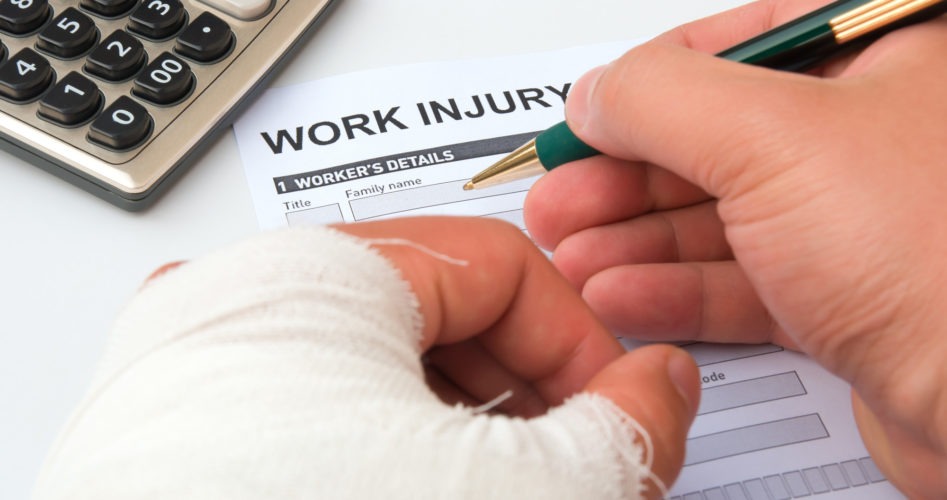Injured on the Job? What to Do Following a Workplace Injury
It is a requirement in every state that employees work in a safe and friendly environment. They should have all the equipment that protects them from injuries and other safety measures put in place.
Sadly, injuries in the workplace are still a regular occurrence. They can still take place despite all safety precautions. Employees can suffer broken bones, chemical burns, and occupational illnesses, among other injuries.
Whether the injury is caused by carelessness on the side of the employer or the employee, there are measures put in place to handle such cases. We take a look at the steps you should take if you’re injured on the job.
Report your Injury
The first measure you can take when injured at work is to inform the employer in writing. Some states have a specified period under which you need to report the injury. If possible, make sure the employer knows about the injury on the job the same day or a few days after the incident.
Sometimes the injury may be so severe that you don’t understand yourself for some time. You may be unconscious or require immediate medical attention. In this case, reporting immediately may not be possible, but you still need to ensure you do it as soon as possible.
See a Doctor
It is important to seek compensation for any injuries you suffer at the workplace, but don’t forget that your health matters. Even small injuries that may not seem severe can cause a lot of damage, or even death, if not treated as soon as possible.
Some employers require you to see the company doctor for treatment. If you’re not satisfied with the employer’s chosen doctor, you’re entitled to a second opinion according to compensation laws. Getting good treatment is paramount, even if it means paying for the expenses from your pockets.
Report the Injury Extent
Sometimes you may not know the extent of the injury before getting a doctor’s assessment. Get your doctor to examine your entire body to see all the injuries you might have suffered. If you fell on your back and hurt the leg as well, you should not leave such details out.
You should report all secondary injuries regardless of how small they may seem. You should also notify the compensation court of any trauma or emotional injuries. If possible, get a psychological assessment to ascertain whether you suffered any emotional injuries.
File a Claim for Getting Injured on the Job
Employers may be looking for ways not to compensate you for the injury or give less compensation. You need to protect your rights by filing a claim with the workers’ compensation court. This way, you will give the employer and their insurance company a formal notice of your injury.
This puts you to automatic protection of your rights, and the employer won’t be able to interfere with anything.
Consult an Attorney
In other circumstances, reporting an injury or filing for compensation may be a complicated process that requires some professional help. A personal injury lawyer will be at your service to give you the best legal advice and help you follow up with the whole compensation process.
An attorney will ensure you’re not cheated on the compensation and that no one intrigues your rights. Ensure you get an attorney with experience in handling workers’ compensation claims. The attorney will explain the law, the whole process, and the benefits you’re entitled to get.
Go Back to Work
Some injuries may render you useless, and you may not be able to resume work even after recovery. This is a different case which will be treated in a special way. Otherwise, you should ensure you resume your duties as soon as you’re back on your feet.
Failure to show up back to work in a timely manner may lead to loss of compensation or even termination of your contract. You’re supposed to attempt even if you believe that you won’t perform as you used to before your on the job injury.
Understand the Rules
Every state has its own rules about the workers’ compensation for those who get hurt at work. There are guidelines and deadlines put in place that both the employer and the injured employee need to adhere to when filing the compensation claim.
Ensure you understand everything required of you and get your attorney to explain anything that’s not clear. The worst mistake you can make in such situations is being ignorant about the rules and the guidelines.
Attend the Hearing
If you’re in a position to do this, ensure you attend all the hearings for your compensation. Don’t relax or assume that the lawyer will handle everything, although they do everything on your behalf.
Attending the sessions will help you understand proceedings better and ensure your rights are not interfered with in any way. Besides, you will be able to pinpoint any foul play during the process and give an immediate notification.
Don’t Represent Yourself
Don’t make the mistake of thinking the injury is small and the attorney will charge you too much. Representing yourself after getting injured at work to escape the attorney charges is the worst mistake you can ever do. You’re allowed to represent yourself, but since you have no legal expertise, things can turn against you.
Remember, your employer and the insurance company both have legal representation, and you will be up against people who understand the law way better than you do. Consulting a lawyer is always a good idea, even when the case looks small.
Hire a Personal Injury Lawyer
Cases of people getting injured on the job and not getting compensated are not new. No employer or the insurance company wants to part with money for this compensation. It is your duty as the worker to do everything possible and follow the required procedure to get compensated.
You need to understand all the processes and guidelines when handling such cases. It won’t cost you more to hire a legal representative than it will cost you to represent yourself and then lose the case.
The law is too complicated, and sometimes you need legal assistance even in cases that look simple. You can go through our website to get the best legal advice today.


